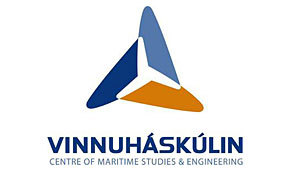Employment, Training and Education
The Faroe Islands have a well organised labour market that delivers the human capital necessary to drive a productive marine-based economy. The Faroese job market follows the traditions and practices of the Nordic countries. Wages and other employment conditions in Faroese fisheries and seafood industries are negotiated through collective agreements between the relevant unions.
The Vessel Owners’ Association, an umbrella association representing all the major vessel groups in the commercial fishing fleet, negotiates wages and other conditions with the Fishermen’s Union, the Shipmasters and Navigators’ Union and the Engineers’ Union. The coastal fishing fleet is organised in the Association of Coastal Fishermen.
Agreements outline the percentage share of the catch to which the crew are entitled, labour conditions on board, such as maximum length of watches, as well as holiday, health and pension benefits. Favourable wage conditions in Faroese fisheries also mean that recruitment into the fishing fleet is generally good, although this can differ greatly between vessel groups.
Experience from working in the commercial fishing fleet is seen as an asset on the Faroese labour market, and time-at-sea is a recognised criterion for pursuing further maritime-related training.
Wages and employment conditions for workers in the land based seafood industries are negotiated through collective agreements with the relevant Faroese labour unions.
Faroese society is based on the Nordic welfare model. Alongside the job market exists a wider welfare system, which provides social security and employment benefits. Citizens and residents are entitled to a range of publicly financed services such as old-age and disability pensions, and free healthcare and education.
Fisheries and maritime training and education
Faroe Islanders have gained an excellent reputation in the maritime sector internationally, not only through their long experience in fisheries, but also as mariners and engineers in the international merchant shipping sector. In addition to the general range of secondary and tertiary educational and training opportunities in the Faroe Islands, a number of institutions offer professional studies in the field of fisheries and maritime occupations.
The Centre of Maritime Studies and Engineering (Vinnuháskúlin) has four lines of education, Skipper, Ship’s Master, Mechanist and Marine Engineer, intended for manning all vessel types and sizes. Education complies with the international standards for maritime training, providing internationally recognised maritime qualifications.
The Maritime School (Sjónám) in Klaksvík provides students with a five month course that prepares them for work on board fishing or merchant vessels. The Maritime School offers Captain and Ship Assistant educations and other maritime courses.
The Fisheries College (Miðnám í Vestmanna) offers a three year course of secondary education designed to train students for the Faroese fish processing industry and the fish-breeding industry, with emphasis on the particular needs of the Faroese industry.

